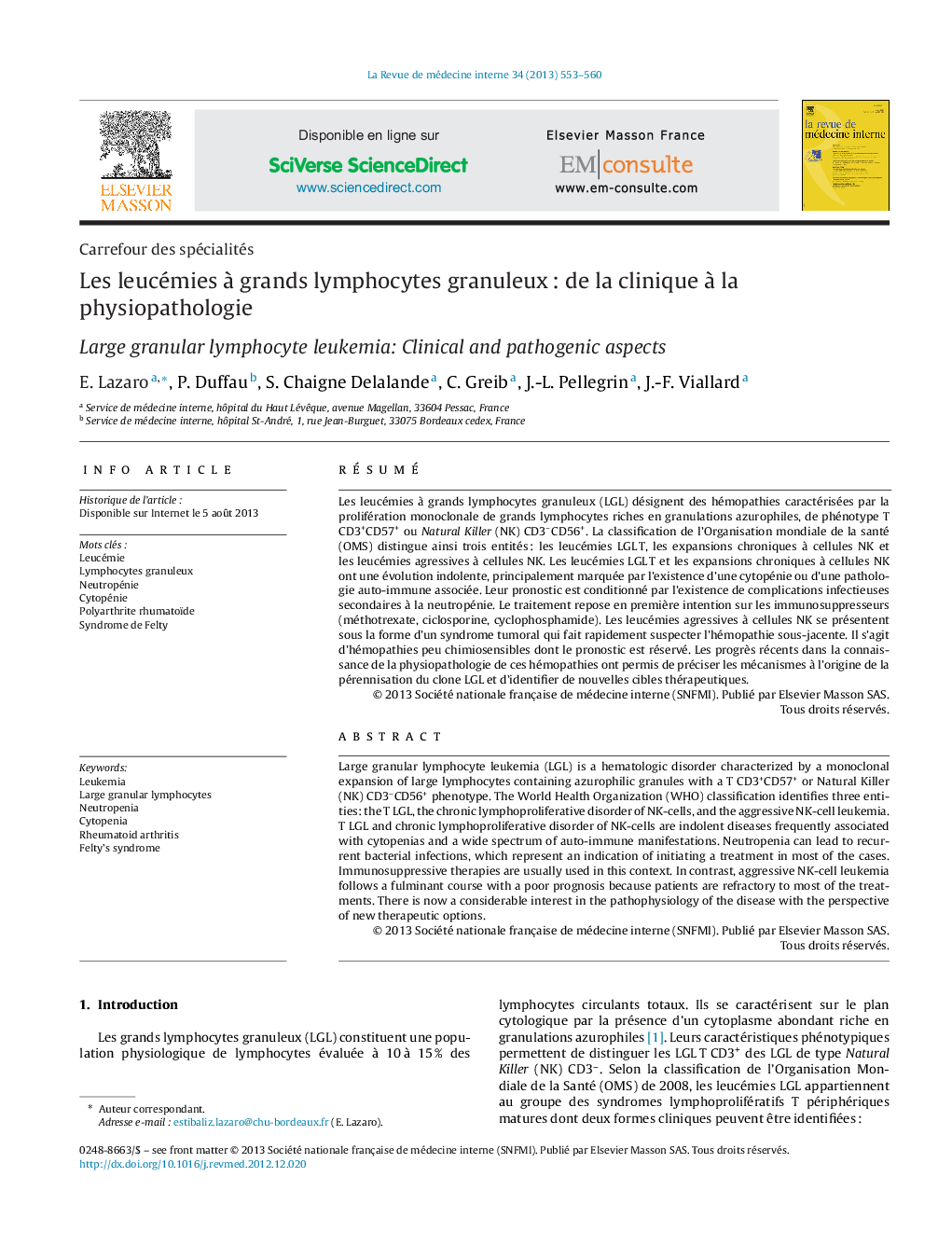| کد مقاله | کد نشریه | سال انتشار | مقاله انگلیسی | نسخه تمام متن |
|---|---|---|---|---|
| 3021590 | 1182371 | 2013 | 8 صفحه PDF | دانلود رایگان |

RésuméLes leucémies à grands lymphocytes granuleux (LGL) désignent des hémopathies caractérisées par la prolifération monoclonale de grands lymphocytes riches en granulations azurophiles, de phénotype T CD3+CD57+ ou Natural Killer (NK) CD3–CD56+. La classification de l’Organisation mondiale de la santé (OMS) distingue ainsi trois entités : les leucémies LGL T, les expansions chroniques à cellules NK et les leucémies agressives à cellules NK. Les leucémies LGL T et les expansions chroniques à cellules NK ont une évolution indolente, principalement marquée par l’existence d’une cytopénie ou d’une pathologie auto-immune associée. Leur pronostic est conditionné par l’existence de complications infectieuses secondaires à la neutropénie. Le traitement repose en première intention sur les immunosuppresseurs (méthotrexate, ciclosporine, cyclophosphamide). Les leucémies agressives à cellules NK se présentent sous la forme d’un syndrome tumoral qui fait rapidement suspecter l’hémopathie sous-jacente. Il s’agit d’hémopathies peu chimiosensibles dont le pronostic est réservé. Les progrès récents dans la connaissance de la physiopathologie de ces hémopathies ont permis de préciser les mécanismes à l’origine de la pérennisation du clone LGL et d’identifier de nouvelles cibles thérapeutiques.
Large granular lymphocyte leukemia (LGL) is a hematologic disorder characterized by a monoclonal expansion of large lymphocytes containing azurophilic granules with a T CD3+CD57+ or Natural Killer (NK) CD3–CD56+ phenotype. The World Health Organization (WHO) classification identifies three entities: the T LGL, the chronic lymphoproliferative disorder of NK-cells, and the aggressive NK-cell leukemia. T LGL and chronic lymphoproliferative disorder of NK-cells are indolent diseases frequently associated with cytopenias and a wide spectrum of auto-immune manifestations. Neutropenia can lead to recurrent bacterial infections, which represent an indication of initiating a treatment in most of the cases. Immunosuppressive therapies are usually used in this context. In contrast, aggressive NK-cell leukemia follows a fulminant course with a poor prognosis because patients are refractory to most of the treatments. There is now a considerable interest in the pathophysiology of the disease with the perspective of new therapeutic options.
Journal: La Revue de Médecine Interne - Volume 34, Issue 9, September 2013, Pages 553–560